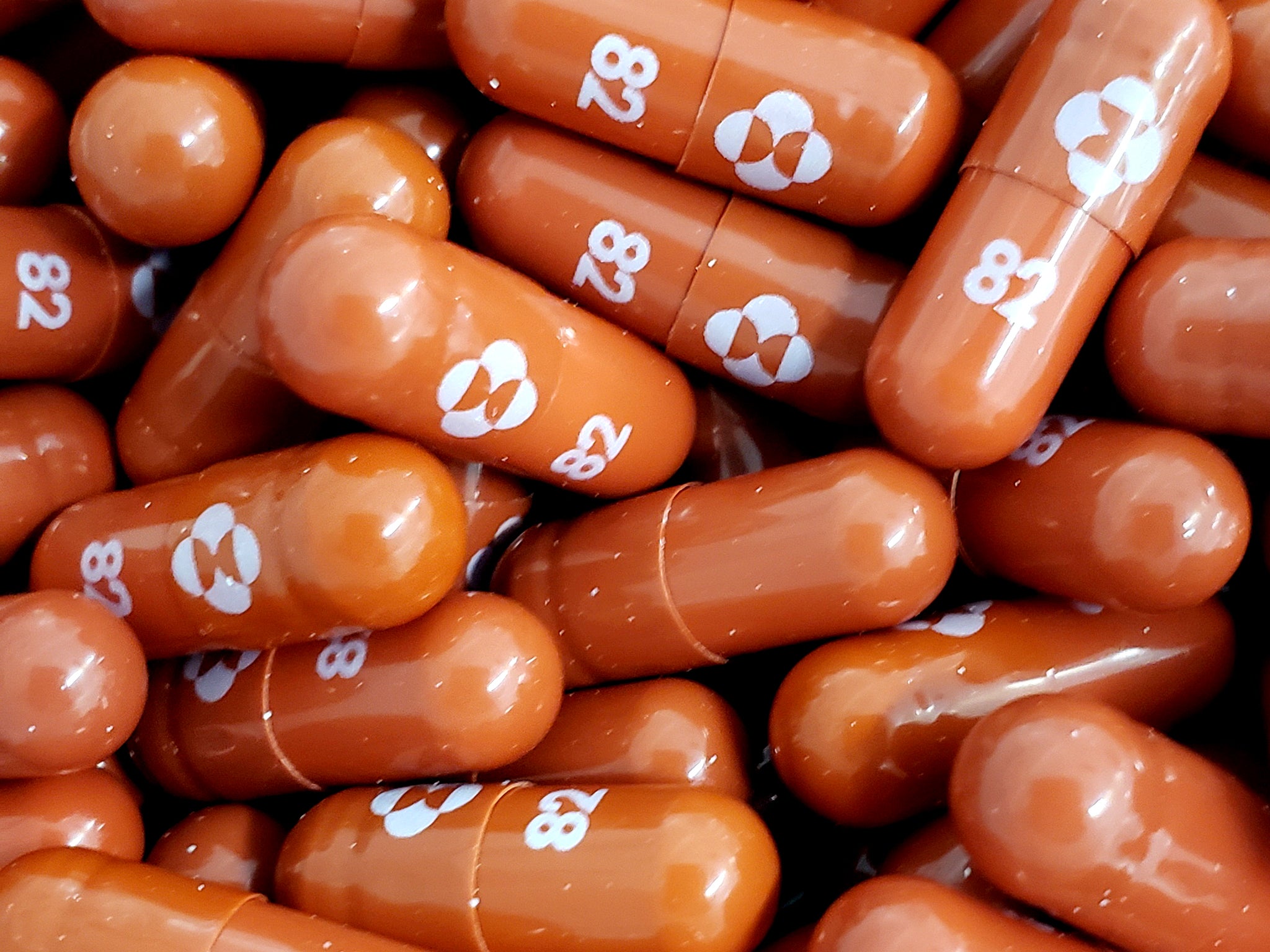Covid pill makers accused of selling drug to US at 40 times what it costs to make despite govt funding
Merck produces a five-day course at $17.74, but US will pay the company $700 for it

The company producing an experimental antiviral pill for Covid-19 treatment is accused of selling the drug to the US at 40 times the cost of its production, found a report.
Molnupiravir, manufactured by pharmaceutical company Merck, has entered into a contract with the US government to supply 1.7 million courses at a price of $700 per course. However, an analysis of drug pricing by Harvard School of Public Health and King’s College Hospital in London found that it takes about $17.74 to produce a five-day course.
The pill, hailed as a breakthrough in the treatment of coronavirus, was originally developed to treat influenza using government funds. The antiviral drug could halve the chances of dying or being hospitalised for those most at risk of contracting severe Covid-19.
The medicine is designed to introduce error in the genetic code of the virus itself and is the first oral antiviral medication for Covid-19.
Defense Threat Reduction Agency, a body under the Department of Defence, invested in a “broad-spectrum antiviral, leading to the discovery of molnupiravir through collaborative research” with Merck, Emory University, Ridgeback Biotherapeutics and National Institute of Health.
The government originally provided Emory University with $29mn in grants between 2013 to 2020, reported Axios. But the federal government declined to put more money into the drug until there was more data. In May 2020, Merck bought the exclusive rights to sell and manufacture the drug worldwide.
Despite the government’s investment, the company plans to seek emergency use authorisation in the US in the coming weeks, will reap the profits alongside Ridgeback and could earn as much as $7bn by the end of this year, reported Quartz.
While critics have argued that the prices should be subsidised due to the funding from the government exchequers, in an interview with CNBC, Ridgeback co-founder Wendy Holman defended using a commercial distribution partner. Ms Holman said the company originally approached the government but “never got (that) funding” to help manufacture the drug before they turned to Merck.
Merck has not issued any comment on the matter.
Luis Gil Abinader, senior researcher at NGO Knowledge Ecology International, told the Intercept that the company was trying to “reshape the narrative” about the development of the drug.
“What they want to do, apparently, is to shape the narrative about who paid for the development of this drug in order to avoid demands from the public to make it available at reasonable prices,” he said.
Merck had earlier said that it will "implement a tiered pricing approach based on World Bank data that recognizes countries’ relative ability to finance their health response to the pandemic."
It has already entered into licensing agreements with at least eight companies in India including Aurobindo Pharma, Cipla, Dr Reddy’s Labs, Emcure Pharmaceuticals, Hetero Labs, Sun Pharmaceuticals, Torrent Pharmaceuticals and Viatris. This would allow each company to make and sell the drug in India and 100 other low and middle-income countries.
Join our commenting forum
Join thought-provoking conversations, follow other Independent readers and see their replies
Comments

Bookmark popover
Removed from bookmarks